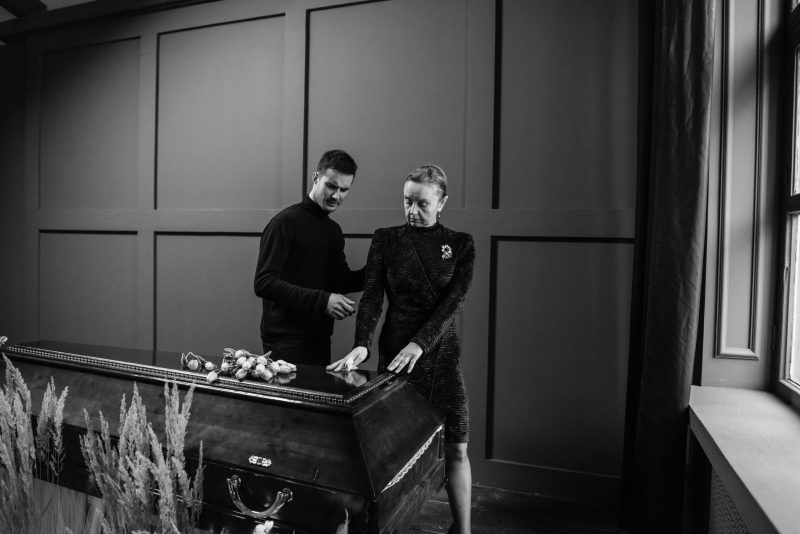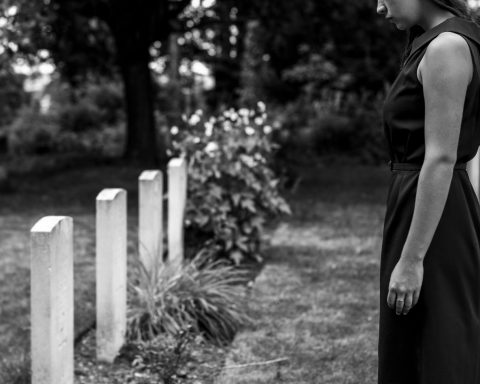A person can be widowed due to a disease, such as the Covid-19 pandemic, or just because of old age. The United Nations calculated that there are more than 258 million widows in the world, due to armed conflict, displacement and migration, and diseases.
Other than that, widowhood is a big transition in life, and with those numbers, many people undoubtedly go through it. But does that transition just affect the widowed person? This research sure does not agree with that.
Widowhood surely affects the family of the widowed person. From changes in daily tasks to even the relationship in the family, there surely will be changes.
This article will help you to see widowhood from a family perspective. You will learn what it means to be a widow and learn how you can help and support a widowed person in your family during their time of grief. Also, this article will offer you some helpful advice on how a widow can navigate challenging times.
Understanding a widow’s grief
Widowhood is such a huge transition in someone’s life. A loss of a loved one can be extremely difficult. The grief that follows could affect everyone and everything, making it hard to eat, sleep, or do anything in life around you.
There will be a lot of emotions that they might experience and could be connected to how they are not able to move on, or just maybe the feeling of regret about something they are not able to confess when their loved one was still alive.
5 Stages of grief
While everyone is different, there are some common emotions and stages that every widow will experience.
Based on research from Elisabeth Kubler-Ross in her book On Death and Dying, someone who’s going through a grieving process will experience some stages which might overlap, occur, or even be missed altogether. These stages consist of:
Stage 1: Denial and isolation
The stage where the widowed refuse to believe that the loss of their loved one has happened.
Stage 2: Anger
This is where the widowed person is filled with a lot of emotions, such as frustration, irritation, and even rage.
Stage 3: Bargaining
The stage where the widowed person starts to try and make a deal or negotiation to change the outcome of the loss.
Stage 4: Depression
The widowed person starts to feel more down, overwhelmed, helpless, and sad because of the loss.
Stage 5: Acceptance
The last stage is when the widowed person starts to accept the reality that their loved one is really gone and tries to live with it.
Common emotions a widow may experience
Even though every person might react differently when they are left by their loved ones, some common emotions might be experienced by widowed persons. Those emotions are connected with how stressful the experience of widowhood is in the life of an individual. Some common emotions that the widow or widower might experience are:
- Guilt
- Grief
- Remorse
- Fear
- Depression
- Sadness
- Anxiety
Widowhood in the family
Research showed that some widows don’t want to show their problems to their children simply because they want to protect their children from being upset. But this also goes both ways, since the children also want to protect their widowed parents, so this creates a pattern of “don’t ask and don’t tell” and a sense of silent protection in the family.
There’s also some line where the widows want to create a boundary with their adult children, because they think that their children do have their own families, and don’t want to step into those boundaries. So this created a line where the children and widowed parents want to maintain a boundary while feeling a strong and meaningful relationship with the other.
Another research showed that there is a change in family interaction regarding the event of widowhood in the life of a widow and widower. Based on a study, it shows that there is a decrease in the total amount of interaction the widows and widowers have with their relatives due to the decreased size of the family.
How to provide emotional support
Losing someone close to you must be a hard thing, and it’s not a secret that a widowed person will be wrecked emotionally because of that. So how can one help them go through that sorrowful and hurtful experience? Here are some of the ways:
Be a good listener
A widowed person or even a generally grieving person must be feeling lonely. Being a good listener is one of the major things that you can do to help them. By being a good listener, you can also help the widowed person think things through and pick the best decision after the tragedy.
Be patient and understanding
The death of a loved one is a big thing and going through it sure is a time-consuming process. But one thing that you should keep in mind is to be patient and understanding of what they’re going through. Losing someone you truly cherish is not an easy thing to move on. Keep in mind that everyone is also grieving differently, so refrain from putting your own expectations on them.
Respect their boundaries
Boundaries are another important thing that you have to give to a widowed person. Boundaries keep someone from breaking apart by protecting their mind, body, and soul. Always respect their boundaries, if they are not ready to go to a family reunion just after they lost their loved one, don’t force or pressure them. You will never know whether that reunion will be a memorable or a traumatic experience for them, so respect their boundaries.
Ways to support a widow in their daily life
Losing a loved one is never easy for anyone. They have to go through the rest of their life without someone that is essentially their soulmate and who they think will always be there for them. Those journeys will not be easy, and of course, they need all the help they can get. So here are some examples of how you can support them in their daily life:
- Help them do their tasks around the house. Doing some chores around the house will surely help them. A widow in the early stage will surely need help doing some daily household chores. But also make sure to keep their boundaries and don’t force them if they said they don’t need help.
- You can also offer to help them take care of their children. Sometimes, a widowed person wants to be alone, but they also have to take care of their children. So make sure to tell them that you can take care of the kids, maybe for a stroll in the afternoon, or even have them stay overnight at your place.
- Another thing that you can do is take the widowed person out to have some fresh air. A change of scenery is a good thing for a widowed person rather than always staying in a house that is filled with a lot of memories of their lost loved ones.
Helpful statements for a grieving widow
Being in a state where you just lost someone precious to you is never easy. And a wrong statement or sentence that’s coming from your other family members or friends is not going to make it any easier. You can’t just say, “You have to let it go”, to the widowed person.
Pick your words carefully when talking with a widowed person, as it may be helpful or will make them feel worse. So here are some examples of statements that are helpful to a grieving widow:
- “I’m sorry for your loss”
- “We all share in your grief”
- “I’m here to help you”
- “Take time for yourself”
- “You are doing a great job”
- “Let me take care of the kids”
What you can do if you are widowed
If unfortunately (let’s hope not), you are a widowed person, there are some things that you need to do. Losing a spouse is really hard, but you can do these things to help you navigate this horrible time, and provide comfort to yourself.
Stop caring what others think
Surely there are some judgmental and tough words from other people. But one thing that you should keep in mind is, you don’t have to care about any of that. You can simply distance yourself and just focus on yourself. You already have a lot on your plate to think about some dreadful comments that maybe, don’t even understand what you’ve gone through.
Accept help
Don’t fool yourself. You need help. Losing someone you love is hard enough, and you don’t have to make it harder by not accepting help from everyone who’s trying to help you. If someone offers to make your coffee, don’t hesitate to accept it. They are not just doing all of those things for nothing, it shows that they care and think about your health.
Focus on growth and transformation
Another thing to keep in mind is to also focus on growth and transformation while grieving. While everyone has those grieving stages differently, there’s also a potential for growth during this time which may lead you to a rewarding life after the grief.
In conclusion
The number of widowed people is increasing each passing day and has reached a high number because of some things such as disease, armed conflict, migration, etc. Based on this article, many things have come to light about widowed people, such as how they are perceived by the family, their grief, and how to be there for them emotionally and in their daily life.
Other than that, you must be mindful of your words when communicating with them. It is essential to know about the importance of emotional and physical help that you can give to widowed people, as it can either help them or just make their widowhood experience worse than it already is.
If you would like to take your reading on widowhood further, visit the Family Science Labs. The lab uses the research of the Institute for Life Management Science to produce courses, certifications, podcasts, videos, and other tools. Check out the Family Science Labs today.
Photo by Pavel Danilyuk on Pexels



